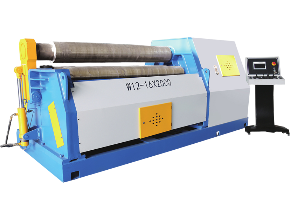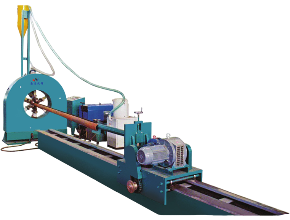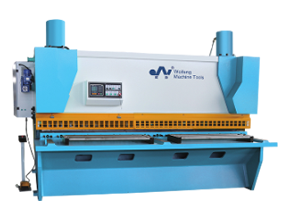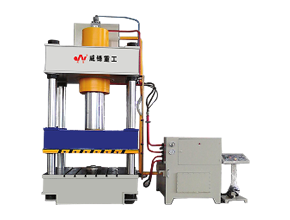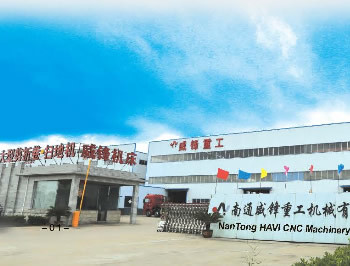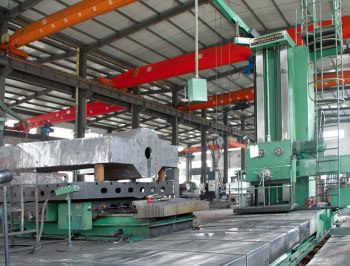Choosing the Right CNC Machine for Your Industry
Release Time:
2025-10-26
Introduction
In today's manufacturing landscape, selecting the right CNC (Computer Numerical Control) machine is critical for maximizing efficiency, precision, and quality. Whether you are involved in automotive, aerospace, construction, or general manufacturing, choosing the correct CNC machine can make all the difference in achieving superior results. Machines like press brakes and rolling machines each have specific applications that cater to the unique requirements of different industries.
This blog will guide you through the process of selecting the right CNC machine for your industry. We will discuss how machines like press brakes, rolling machines, and other industrial CNC equipment are chosen based on their suitability for various applications, focusing on the benefits each machine brings to industries like automotive manufacturing, aerospace, and construction.
What is a CNC Machine?

A CNC machine refers to any machine tool that is controlled by a computer. These machines are used in manufacturing to automate the process of cutting, shaping, drilling, or assembling parts with high precision. CNC machines are capable of performing repetitive tasks with incredible accuracy, making them ideal for mass production and complex manufacturing processes.
The main advantage of CNC machines lies in their ability to work autonomously, reducing the need for manual labor and ensuring consistent results, which is vital for industries that require high precision and speed.
Types of CNC Machines and Their Applications
There are several types of CNC machines, each serving a unique purpose. Two of the most common types of CNC machines are press brakes and rolling machines, both of which have wide applications in industries such as automotive, aerospace, and construction.
1. CNC Press Brakes
Press brakes are used for sheet metal bending and are crucial in industries that require metal parts to be shaped and formed into specific angles. These machines use a hydraulic or electric system to bend sheets of metal by pressing them against a die.
Key benefits of CNC press brakes:
High precision: CNC press brakes allow for extremely accurate and repeatable bends, making them ideal for industries where precision is key, such as aerospace and automotive.
Customizable options: CNC press brakes can accommodate various materials, including steel, aluminum, and stainless steel, making them versatile for different manufacturing needs.
Enhanced productivity: Automated controls and preset programs reduce setup time and increase production speeds, making CNC press brakes essential for high-volume manufacturing environments.
Applications:
Automotive Manufacturing: CNC press brakes are widely used for bending metal components used in car bodies, frames, and exhaust systems.
Aerospace: Aerospace parts often require complex bends and high precision, which CNC press brakes can easily provide.
Construction: Press brakes are also used to shape metal components for structural elements such as beams, columns, and frame
2. CNC Rolling Machines
CNC rolling machines are used for metal rolling, which is the process of shaping metal sheets, plates, or bars into cylindrical or conical forms. These machines can handle various materials, such as steel, aluminum, and other alloys, and are essential for industries that require curved or rolled metal components.
Key benefits of CNC rolling machines:
Accuracy: CNC rolling machines ensure consistent and precise rolling of metal sheets, helping industries achieve the required curvature for their products.
High versatility: CNC rolling machines are suitable for various applications, from rolling thin metal sheets to forming thick plates used in heavy-duty industries.
Efficient production: CNC systems enable quick adjustments to the rolling process, reducing downtime and improving productivity.
Applications:
Shipbuilding: In shipbuilding, CNC rolling machines are used to form the metal plates used in hull construction.
Heavy Machinery Manufacturing: CNC rolling machines shape large metal components for heavy-duty machinery and equipment.
Construction: In the construction industry, CNC rolling machines help create structural components, such as curved beams and pipes.
How to Select the Right CNC Machine for Your Industry

Selecting the right CNC machine depends on the specific requirements of your industry, such as the materials you are working with, the precision required, and the volume of production. Below are some considerations when choosing between press brakes, rolling machines, and other CNC equipment:
1. Industry Needs and Material Types
Automotive and Aerospace: Industries that require high-precision, complex parts, such as automotive bodies or aerospace components, benefit greatly from CNC press brakes and rolling machines due to their ability to handle complex bends and forms.
Construction: For industries that work with structural components like beams, columns, and piping, CNC press brakes and rolling machines are essential for achieving accurate, durable parts.
General Manufacturing: In general manufacturing, the type of machine chosen depends on the specific needs of the production process, whether it's metal bending or rolling.
2. Precision and Repeatability
Press brakes are ideal for industries that require consistent and accurate bending with little to no margin for error, such as aerospace and automotive manufacturing.
Rolling machines are essential when precise control over curvature is needed, particularly for the shipbuilding and heavy equipment industries.
3. Production Volume
Automated CNC machines, like press brakes and rolling machines, are perfect for high-volume production. They reduce manual intervention, improve efficiency, and ensure consistency across large batches.
For smaller-scale operations, machines with more manual control or semi-automated systems might be sufficient, though they would likely require more hands-on intervention.
How CNC Machines Improve Manufacturing Efficiency

CNC machines improve manufacturing efficiency in several ways:
Consistency: CNC machines reduce human error and ensure that parts are made to exact specifications every time. This is particularly important in industries like aerospace and automotive, where precision is non-negotiable.
Speed: Automated CNC systems can produce parts faster than manual machines, improving throughput and reducing production times.
Flexibility: CNC machines can be programmed to handle a wide variety of materials and sizes, allowing manufacturers to easily switch between tasks without needing to reconfigure the machine.
Cost Savings: Though the initial investment in CNC machines may be high, the long-term cost savings from increased productivity, reduced material waste, and lower labor costs make them a worthwhile investment.
FAQ: CNC Machine Selection
Q1: What is the difference between CNC press brakes and CNC rolling machines?
CNC press brakes are primarily used for bending sheet metal, while CNC rolling machines are designed for rolling metal sheets or plates into cylindrical or conical shapes. Both machines are used in metal fabrication but serve different purposes.
Q2: Can CNC press brakes handle different types of metals?
Yes, CNC press brakes can handle a variety of metals, including steel, aluminum, and stainless steel. They can also work with different sheet thicknesses, depending on the machine’s capabilities.
Q3: Which CNC machine is best for high-volume production?
For high-volume production, CNC press brakes and rolling machines are ideal because they can operate autonomously, ensuring faster turnaround times and consistent results.
Q4: How do CNC machines improve manufacturing precision?
CNC machines use computerized control systems to perform tasks with high accuracy. This reduces human error and ensures that parts are consistently made to the exact specifications required for their application.
Q5: Can CNC machines be customized for specific production needs?
Yes, CNC machines can be customized in terms of tooling, software, and machine settings to suit the specific needs of different industries, whether it's automotive, aerospace, or construction.
Conclusion
Choosing the right CNC machine is critical for ensuring precision, speed, and cost-effectiveness in metal fabrication. Whether you are working in the automotive, aerospace, or construction industries, selecting the appropriate machine—whether it's a CNC press brake, a rolling machine, or another piece of equipment—can make all the difference in the quality and efficiency of your manufacturing process.
For more information on CNC machines, including the WE67K CNC press brake or QC11Y hydraulic guillotine shearing machines, visit HAVI CNC Machinery.
Related News


